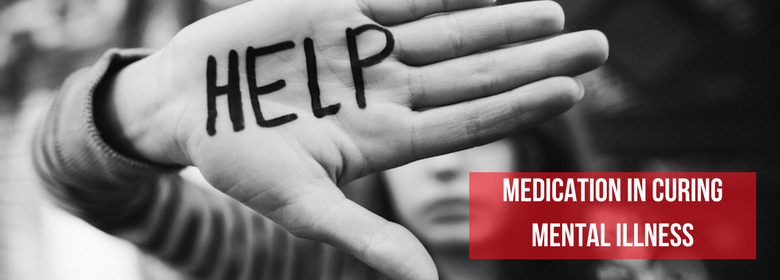Importance of Medication in Curing Mental Illness

Did you know 1 in 5 people experience mental illness in some form? And this is not the scary part. What is scary is the fact that this illness is more common than other deadly diseases yet the most neglected because of the stigma attached. With the advancement in science and research, these disorders can be treated and corrected by medications.
In simpler terms, getting help for mental illness should be equivalent to getting treated for other physical illnesses such as headaches, TB or eyesight problems. Researchers have proved that mental illness is a result of chemical imbalance in a person’s brain and it can be addressed with the help of medication and just like with any other medication, this treatment will also take time to show its effects.
So if you or a person you know is suffering, we request to you break the stigma and get the right treatment. The first step towards treatment is getting diagnosed. Only through diagnosis can a doctor prescribe the option that suits you best.
Below are the medication categories from which doctors generally prescribe:
1. Anti-psychotic – Used to treat schizophrenia and bipolar disorder, this drug helps reduce or eliminates the tendency to hallucinate and helps maintain a balance in mood. It also promotes focus on reality, sleeping habits and effective communications.
2. Antidepressants – Used to treat insomnia, depression and anxiety, this drug is helpful in suppressing the chemicals in the brain that upset one’s mood and emotions while promoting sleep and concentration.
3. A mood stabilizer – As the name suggests this drug helps one maintain a balance in their mood and helps to cope with life’s ups and downs with ease. This drug is more commonly combined with antidepressants to treat severe forms of depression.
4. Stimulants – Are prescribed to treat people diagnosed with ADHD – a disorder that causes hyperactivity and reduced attention span in an individual. This drug stimulates the brain and paves way for it work more effectively.
While these medications help treat the actual illness, the patient undergoing the treatment might experience a few side effects. It is highly recommended that the patient or the care taker is watchful and in touch with their doctors periodically to face undesirable situations.
Reference:
http://www.mentalhealthamerica.net/medication#types
